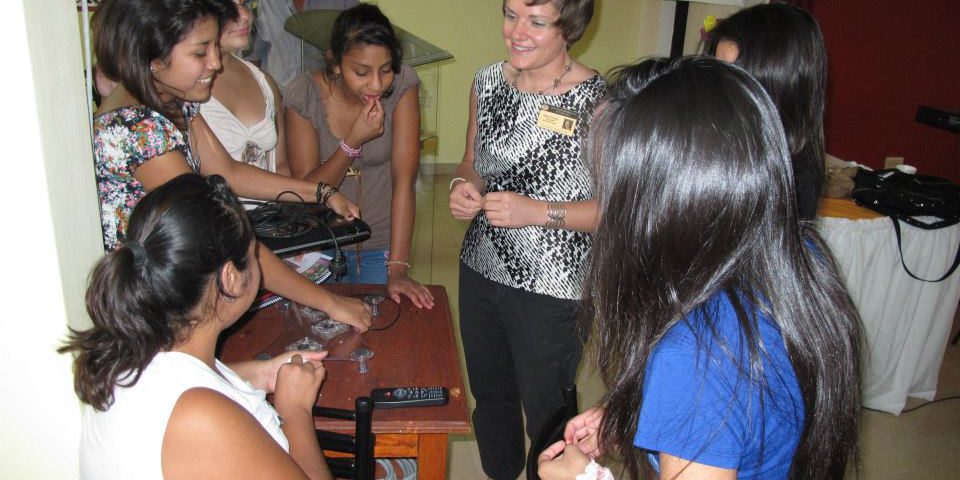What I’m Talking About When I Talk About Pastoral Ministry
At it’s core, ministry is participating with God in the work of his kingdom here and now. God invites us to join his mission in redeeming and restoring all things in all the world. Our identity and calling is grounded in being made in God’s image, created to reflect his likeness in all we are and in all we do.
A pastor is someone with the gifts and graces for leading people on God’s kingdom mission. Pastors do this through preaching, celebrating the sacraments, and by being chief community builders.
As pastors we journey with others, constantly pointing to God who is in the midst of us—in the everyday, ordinary stuff of life. Pastors train and equip people to be God’s kingdom agents in their communities, families, jobs—wherever they find themselves. We help people make the connection between their vocation with how God is at work in and through them.
We lead the way in creating healthy, holy community and call others to do the same.
Pastors are Spirit filled prophets who discern the times, the culture, and the particular context of the particular people they are journeying with. We speak truth and cast vision that instills a hope that is grounded in reality and inspires loving action towards peace and justice.
In today’s world, pastoral leadership is about relationships and conversation. We lead by being good listeners and good storytellers. We are asked to be genuine and authentic in our spiritual sojourn and not pretend to hold all the answers.
We are spiritual guides who understand that God may be found and worshipped in a variety of ways. Yet we hold unswervingly to Jesus Christ as our way and as our center.
The leadership culture we build emphasizes partnership, networking, and teamwork. We ask, who else will join us on this particular mission in this particular place? What strengths and gifts do they bring and how can they be free to use them? How can we seek diversity while promoting unity?
Naming My Ministry Context:
I have a heart for those asking the question — what does it mean to be the church today? I would like to invite others to be creative and explore ways of doing church together that would engage those who are not connecting or being reached by many current methods.
Postmodern
By saying postmodern, I include people of any age who question authority and absolutes, value experience and don’t think in terms of “black and white”. Those who tend to be non-linear, non-hierarchical connectors.
Postmoderns are those who have had the world opened up to them thanks to Google and Facebook, and ease of travel. They are increasingly globalized and know there is great diversity of opinions, religions, cultures, and ways of doing things.
They are socially conscious and care deeply about causes like the environment, racial reconciliation, and add “doing good” to the bottom line.
They are post-Christian, but not yet ready to give up on faith. They are hungry for genuine, authentic, action-oriented spirituality.
Because they move around so much, they seek something to ground them and help them find home.
Multi-Cultural
Ministering in a multi-cultural context springs out of my theology grounded in the image of God and the mission of God. I believe multi-cultural ministry is extremely challenging, yet is God’s heart and design for his people.
We reflect more fully who God is by being a diverse community of worshippers. I believe we should continue to push ourselves to mirror the diversity of humanity in God’s image across multiple ethnicities, generations, and genders.
Urban professionals have already been facing up to our globalized reality. As the church, it is more than just a strategy, this is who we are. We should be the most culturally intelligent people in the world. I want to help foster that kind of community.
Urban
I feel most comfortable and connected in urban environments that are centers of activity—business and social gathering places. Cities draw people seeking opportunity and are where trends get set. They are places of influence, and launching pads for all kinds of innovation.
Cities are where one can find extremely diverse neighborhoods filled with rich and poor alike.
Young adults searching for jobs, connection, and a place where they can “do it all” flock to cities.
As much of the world is moving into urban centers, I believe the church should be too.
Together
I believe living out this vision of ministry can happen by casting vision, leading a team, and by building community.
I do not desire to just fill a position or to manage programs. I hope to advance God’s purpose, build momentum, and create a lasting impact. And I want to do it working with a core of people seeking to engage their community in missional ways.





